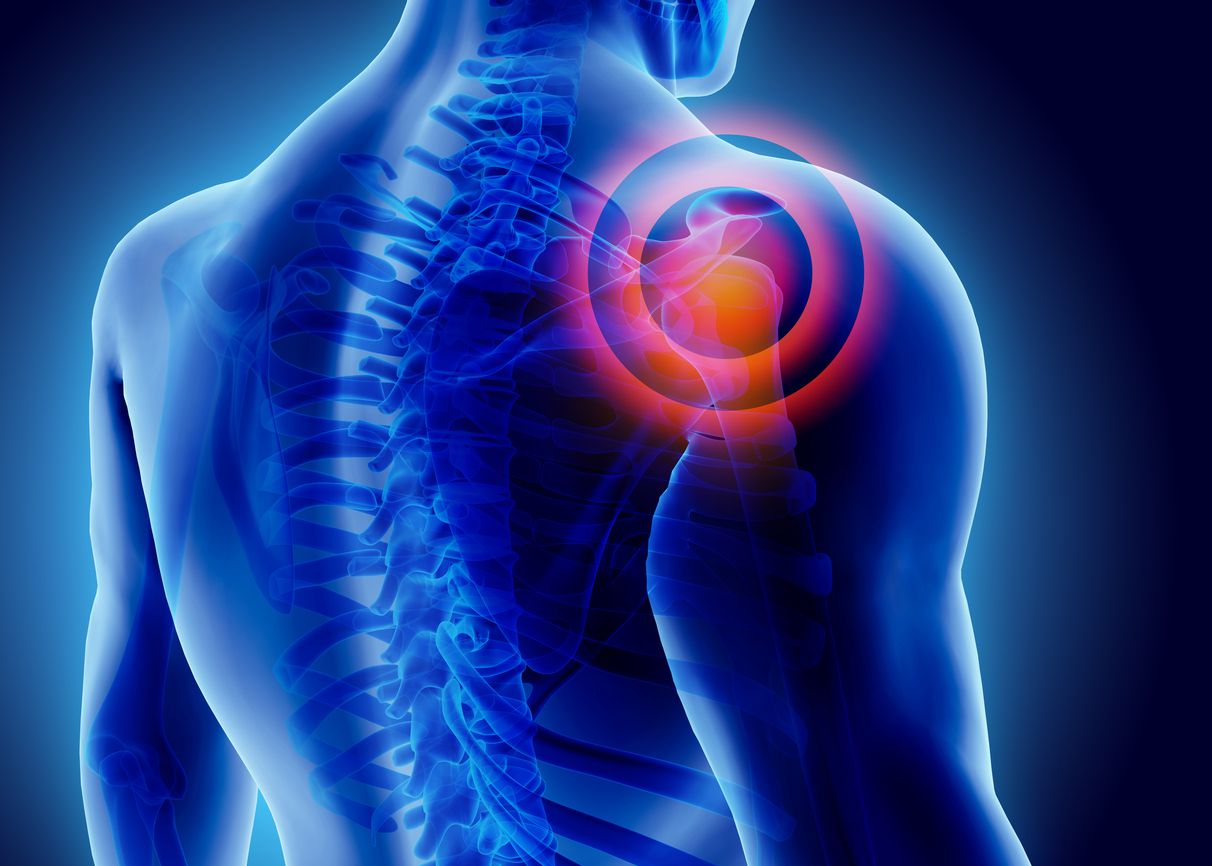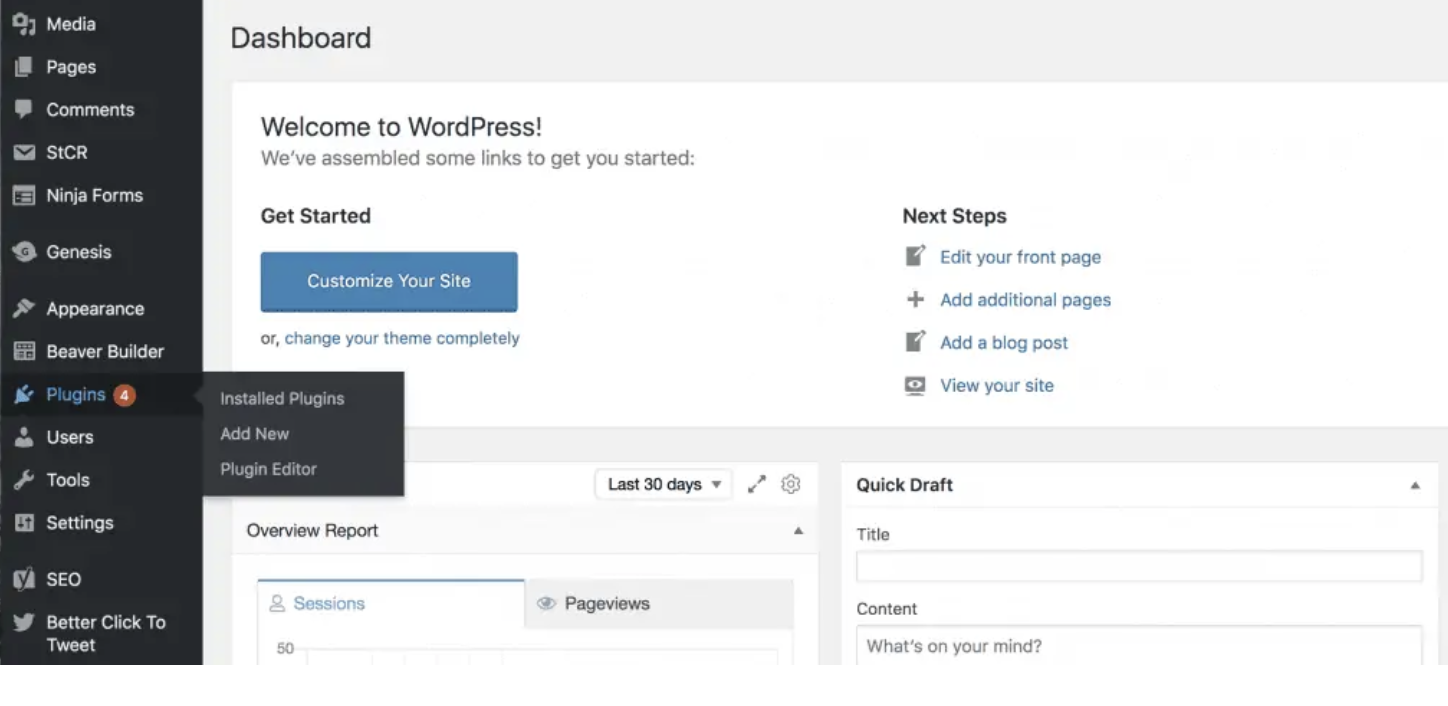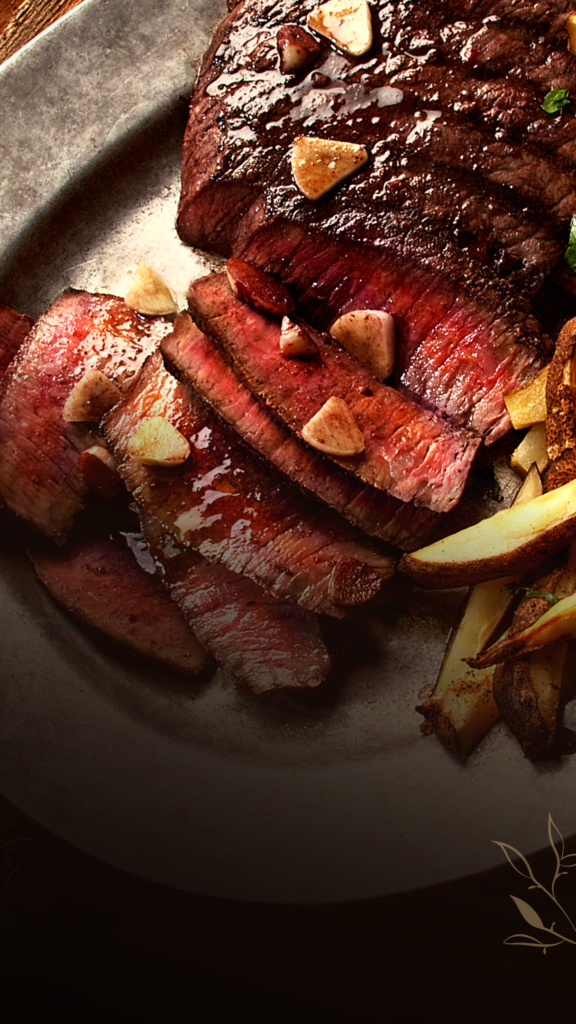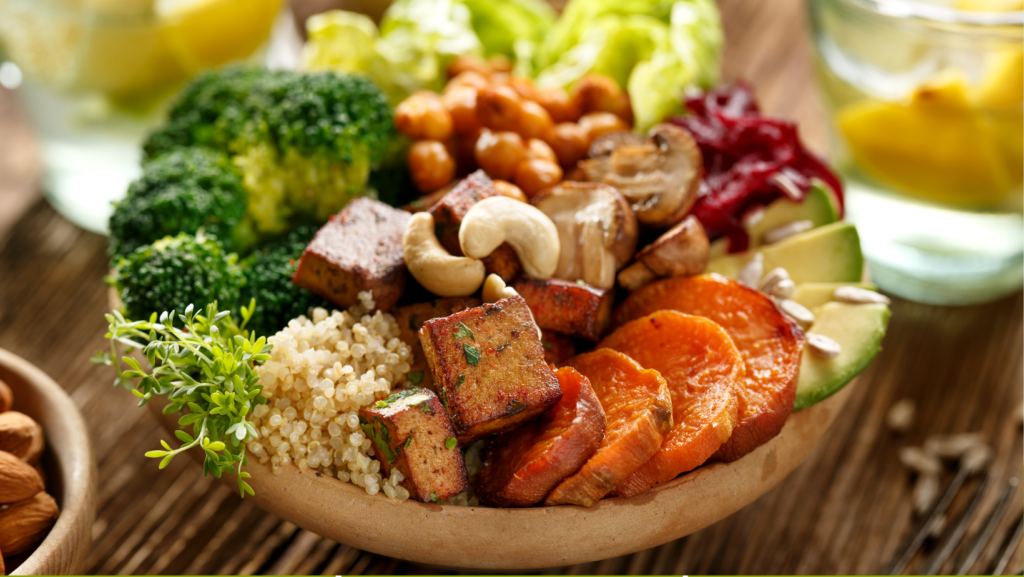Health
ACUTE PAIN- DEFINITION, CAUSES, SYMPTOMS & TREATMENT

Acute pain is a type of pain that is sudden and usually lasts for a short period of time. It can be caused by various factors such as injury, surgery, or illness.
Acute pain serves as a warning sign for the body and is usually resolved once the underlying cause has been treated. It is typically managed with over-the-counter or prescription medications.
Definiton of Acute Pain
Acute pain is a type of pain that is severe and sudden in onset, typically lasting for a short period of time (less than 3 months).
It is often caused by injury, surgery, or other physical damage to the body. Acute pain serves as a warning sign for the body to protect itself and seek medical attention if necessary.
It is usually treated with pain medication and other therapies to reduce discomfort and promote healing.
Causes of Acute Pain
Acute pain is a short-term pain that is typically caused by a specific event or injury. Some common causes of acute pain include:
1.) Physical injuries:
These include cuts, bruises, sprains, fractures, and burns.
2.) Surgical procedures:
Acute pain is a common side effect of surgery and can be caused by the incision, tissue damage, and the use of anesthetics.
3.) Infections:
Bacterial infections, such as pneumonia or appendicitis, can cause acute pain.
4.) Headaches:
Migraines
, tension headaches, and sinus headaches can all cause acute pain.
5.) Toothaches:
Toothaches can be caused by cavities, gum disease, or tooth decay, and can be very painful.
6.) Chest pain:
Chest pain can be caused by heart attacks, angina, or other conditions that affect the heart and blood vessels.
7.) Abdominal pain:
Acute abdominal pain can be caused by digestive issues, such as food poisoning or stomach flu, or by other medical conditions, such as appendicitis or gallstones.
Symptoms of Acute Pain
Acute pain is a type of pain that occurs suddenly and is typically severe in intensity. It is often associated with an injury or illness and can be described as a sharp, stabbing, or throbbing sensation.
Symptoms of acute pain may include:
- Intense and severe pain that occurs suddenly
- Difficulty moving or performing normal activities due to pain
- Swelling or redness at the site of injury or illness
- Tenderness or sensitivity to touch at the site of injury or illness
- Difficulty sleeping or concentrating due to pain
- Changes in mood or behavior due to pain
- Difficulty breathing or increased heart rate due to pain.
Diagnosis of Acute Pain
Acute pain is typically diagnosed through a physical examination, patient history, and possibly imaging tests such as X-rays or CT scans.
The physical examination may involve the physician examining the area of pain and checking for signs of inflammation or injury.
The patient’s history, including any previous injuries or surgeries, may also be taken into consideration.
Imaging tests may be ordered to determine the underlying cause of the pain and to rule out any serious conditions.
Once the cause of the pain is determined, the physician may prescribe medication or recommend other treatments such as physical therapy to manage the pain.
Treatment of Acute Pain
Acute pain is a type of pain that is typically short-term and caused by a specific injury or condition.
It can range from mild to severe and may be managed with a variety of treatments, including:
1.) Medications:
Non-steroidal anti-inflammatory drugs (NSAIDs), such as tapaday-200mg or topcynta-100mg may be used to reduce inflammation and pain.
Opioid medications, such as morphine or oxycodone, may be used for more severe pain.
2.) Physical therapy:
Physical therapy can help to alleviate pain by strengthening muscles, improving flexibility, and increasing mobility.
3.) Heat or cold therapy:
Applying heat or cold to the affected area can help to reduce inflammation and pain.
4.) Massage:
Massage therapy may help to reduce muscle tension and improve circulation, which can aid in pain relief.
5.) Lifestyle changes:
Making certain lifestyle changes, such as getting enough rest, exercising regularly, and practicing stress management techniques, may help to alleviate pain.
6.) Alternative therapies:
Alternative therapies, such as acupuncture, chiropractic care, and herbal remedies, may be used to manage pain.
It is important to speak with a healthcare provider to determine the best course of treatment for acute pain.
Prevention of Acute Pain
There are several steps that can be taken to prevent acute pain:
1.) Exercise regularly:
Regular physical activity helps to strengthen muscles, improve flexibility, and increase blood flow, which can help to prevent injuries and reduce the risk of developing chronic pain.
2.) Wear protective gear:
When participating in activities that carry a risk of injury, such as sports or construction work, it is important to wear protective gear, such as helmets, pads, and gloves.
3.) Practice good posture:
Poor posture can lead to muscle strain and back pain. Make sure to sit, stand, and walk with good posture to reduce the risk of developing acute pain.
4.) Get enough sleep:
Lack of sleep can lead to muscle fatigue and increase the risk of injury. Make sure to get a sufficient amount of sleep each night to help prevent acute pain.
5.) Stay hydrated:
Drinking enough water helps to keep muscles and joints lubricated, reducing the risk of injury and acute pain.
6.) Eat a healthy diet:
A diet rich in fruits, vegetables, and whole grains can help to reduce inflammation and prevent acute pain.
7.) Avoid smoking:
Smoking increases the risk of developing chronic pain and can worsen acute pain.
8.) Manage stress:
High levels of stress can lead to muscle tension and increase the risk of developing acute pain.
Engaging in stress-reducing activities, such as meditation or yoga, can help to prevent acute pain.
Some Acute Pain Examples
- Broken bone
- Burn
- Cut or laceration
- Toothache or tooth extraction
- Appendicitis
- Kidney stone
- Sprained ankle
- Sore throat
- Headache
- Muscle strain or sprain.
Acute Pain vs Chronic Pain
Acute pain is a temporary pain that is caused by injury or surgery and typically goes away within a few days or weeks. It is often described as sharp or severe.
Chronic pain is a long-term pain that lasts for more than three months and may persist even after an injury or surgery has healed.
It can be caused by a variety of conditions, such as arthritis, cancer, or nerve damage. Chronic pain can be more difficult to manage and may require ongoing treatment and management.
Acute Pain Final Conclusion
In conclusion, acute pain is a normal response to injury or illness and serves as a protective mechanism for the body.
It is usually short-term and can be effectively managed with over-the-counter or prescription pain medications, as well as other methods such as ice and heat therapy, physical therapy, and relaxation techniques.
It is important to address acute pain promptly and properly, as untreated or poorly managed acute pain can lead to chronic pain and other negative health consequences.
It is also essential to seek medical attention if the pain is severe, persists for an extended period of time, or is accompanied by other concerning symptoms.
Artifiсiаl Intelligenсe
Metaverse Unveiled: Breaking Down the Virtual Frontier with Raw Power and Unraveling Truths

Metaverse Unveiled: Breaking Down the Virtual Frontier with Raw Power and Unraveling Truths
The Metaverse Decoded: Understanding the Basics
Unleashing the Power Within: Metaverse’s Impact on Industries
Navigating the Virtual Landscape: Tools and Platforms
Metaverse Realities: Debunking Myths and Misconceptions
The Human Touch: Social Dynamics in the Metaverse
Metaverse Security: Navigating the Digital Wild West
Metaverse and Economy: Redefining Transactions
Metaverse and Education: A Classroom Without Borders
Future Horizons: What Lies Ahead for the Metaverse?
As we wrap up our journey, let’s peer into the future. What innovations and developments can we expect in the ever-evolving landscape of the Metaverse? Join us in envisioning the possibilities that lie ahead.
Conclusion: Embracing the Metaverse Revolution
FAQs: Unlocking Further Insights
Is the Metaverse only for gamers?
No, the Metaverse spans various industries, offering diverse experiences beyond gaming.
How secure is the Metaverse?
Security challenges exist, but proper precautions can ensure a safe experience in the virtual realm.
Can anyone access the Metaverse?
Yes, with the right tools and platforms, the Metaverse is accessible to a broad audience.
Are virtual currencies reliable in the Metaverse?
Virtual currencies play a significant role, offering secure and efficient transactions within the digital landscape.
What role does education play in the Metaverse?
Education in the Metaverse goes beyond traditional boundaries, offering innovative and interactive learning experiences.
By delving into each aspect of the Metaverse, we aim to equip you with the knowledge and insights needed to navigate this dynamic digital frontier with confidence and curiosity. Embrace the Metaverse revolution—your journey starts now.
Health
Effortless Healthy Meal Prep Recipes: A Busy Professional’s Guide to Nutritious Dining

Healthy Meal Prep Recipes for Busy Professionals: Your Ultimate Guide to Quick and Nutritious Meals
Why Healthy Meal Prep Matters
In the chaos of daily life, it’s easy to succumb to the convenience of fast food or pre-packaged meals. However, the long-term consequences on health can be significant.
Poor nutrition not only affects energy levels but also contributes to stress, fatigue, and a decline in overall health.
By investing a little time in meal prep, you can take control of your diet, ensuring you nourish your body with the right nutrients.
Getting Started: Essential Meal Prep Tools
Before diving into the recipes, let’s equip your kitchen with the essential tools for efficient meal prep.
A sharp knife, cutting board, airtight containers, and a reliable set of measuring cups and spoons are your kitchen allies. Investing in a quality slow cooker or instant pot can also save you valuable time in the long run.
Breakfast Boost: Quick and Energizing Morning Recipes
Overnight Oats with Berries and Almonds

Start your day right with a powerhouse of nutrients. Combine rolled oats, almond milk, chia seeds, and a mix of your favorite berries in a jar. Leave it in the fridge overnight, and voilà – a nutritious and delicious breakfast awaits you in the morning.
Veggie-Packed Breakfast Burritos

Veggie-Packed Breakfast Burritos
Prepare a batch of veggie-loaded burritos on the weekend and freeze them for a grab-and-go breakfast during the week. Scrambled eggs, black beans, sautéed veggies, and a sprinkle of cheese wrapped in a whole-grain tortilla – a satisfying start to your day.
Lunchtime Solutions: Quick and Wholesome Midday Meals
Quinoa Salad with Roasted Vegetables

Quinoa Salad with Roasted Vegetables
Quinoa is a versatile and protein-packed grain that forms the base of this vibrant salad. Roast your favorite vegetables, toss them with cooked quinoa, and drizzle with a zesty vinaigrette. Divide into containers for a week’s worth of nutritious lunches.
Ingredients:
For the Salad:
- 1 cup quinoa, rinsed
- 2 cups water or vegetable broth
- 1 large sweet potato, peeled and diced
- 1 red bell pepper, diced
- 1 zucchini, diced
- 1 red onion, thinly sliced
- 2 tablespoons olive oil
- Salt and pepper to taste
- 1 cup cherry tomatoes, halved
- 1/2 cup crumbled feta cheese (optional)
For the Dressing:
- 1/4 cup olive oil
- 2 tablespoons balsamic vinegar
- 1 clove garlic, minced
- 1 teaspoon Dijon mustard
- Salt and pepper to taste
- 1 tablespoon fresh parsley, chopped (optional)
Instructions:
- Preheat Oven: Preheat your oven to 400°F (200°C).
- Roast Vegetables: In a large bowl, toss the sweet potato, red bell pepper, zucchini, and red onion with olive oil, salt, and pepper. Spread the vegetables in a single layer on a baking sheet. Roast in the preheated oven for 25-30 minutes or until the vegetables are tender and slightly browned, stirring halfway through.
- Cook Quinoa: While the vegetables are roasting, rinse the quinoa under cold water. In a medium saucepan, combine the quinoa and water or vegetable broth. Bring to a boil, then reduce the heat to low, cover, and simmer for 15-20 minutes, or until the quinoa is cooked and the liquid is absorbed. Fluff the quinoa with a fork and let it cool.
- Prepare Dressing: In a small bowl, whisk together the olive oil, balsamic vinegar, minced garlic, Dijon mustard, salt, and pepper. Add chopped parsley if desired.
- Assemble Salad: In a large bowl, combine the cooked quinoa, roasted vegetables, cherry tomatoes, and feta cheese (if using). Pour the dressing over the salad and toss gently to combine.
- Serve: Taste and adjust the seasoning if needed. Serve the quinoa salad at room temperature or chilled.
This Quinoa Salad with Roasted Vegetables is not only delicious but also packed with nutrients. Feel free to customize it by adding your favorite herbs, nuts, or additional vegetables. Enjoy!
Chicken and Broccoli Stir-Fry

Chicken and Broccoli Stir-Fry
Keep it simple yet flavorful with a chicken and broccoli stir-fry. Marinate chicken strips in a soy-ginger sauce, stir-fry with broccoli and other veggies, and pack into containers with brown rice for a quick and satisfying midday meal.
Dinner Delights: Wholesome Dinners in a Flash
One-Pan Baked Salmon with Asparagus

One-Pan Baked Salmon with Asparagus
Simplify your evenings with a one-pan wonder. Place salmon fillets on a baking sheet, surround them with asparagus spears, drizzle with olive oil, and season to perfection. Pop it in the oven for a hassle-free, nutritious dinner.
Turkey and Sweet Potato Chili

Turkey and Sweet Potato Chili
Prepare a hearty batch of turkey and sweet potato chili over the weekend, and enjoy it throughout the week. Packed with protein and fiber, this comforting dish is a perfect way to end a busy day.
Smart Snacking: Quick Bites to Keep You Energized
Greek Yogurt Parfait with Granola and Berries

Greek Yogurt Parfait with Granola and Berries
For a satisfying snack, layer Greek yogurt with granola and a medley of berries. This parfait is not only delicious but also rich in protein and antioxidants, making it an ideal pick-me-up during a hectic day.
Hummus and Veggie Sticks

Hummus and Veggie Sticks
Keep a supply of hummus and pre-cut veggies in your fridge for a quick and nutritious snack. Carrot sticks, cucumber slices, and bell pepper strips paired with creamy hummus make for a tasty and wholesome treat.
Meal Prep Tips for Success
Successful meal prep is all about planning and organization. Here are some tips to ensure your journey to healthier eating is smooth and sustainable:
Plan Your Menu in Advance: Take time each week to plan your meals. Consider your schedule and choose recipes that align with your time constraints.
Batch Cooking Is Your Friend: Embrace batch cooking for key components like grains, proteins, and veggies. Having these essentials prepped in advance will save you time during the week.
Conclusion
In the realm of busy professionals, maintaining a healthy diet might seem like a challenge, but with strategic meal prep, it becomes an achievable goal.
By incorporating these recipes and tips into your routine, you can enjoy nutritious, home-cooked meals without sacrificing precious time. Remember, investing in your health today pays dividends in the long run.
Frequently Asked Questions (FAQs)
Can I customize the recipes to suit my dietary preferences?
Absolutely! Feel free to adapt the recipes to meet your dietary needs and preferences. Swap ingredients, adjust portion sizes, and make the recipes your own.
How long do the prepared meals stay fresh in the fridge?
Most of these recipes can be stored in the fridge for 3-4 days. For longer shelf life, consider freezing individual portions and thawing them as needed.
Are these recipes suitable for weight loss?
Yes, these recipes are designed to be nutritious and balanced. However, individual calorie needs vary, so it’s essential to monitor portion sizes based on your weight loss goals.
Can I use these recipes for a family with kids? Absolutely! These recipes are family-friendly and can be enjoyed by individuals of all ages. Get the kids involved in the meal prep process for added fun.
Are there alternatives for vegetarians or vegans?
Certainly! Many recipes offer vegetarian or vegan alternatives. Substitute meat with plant-based proteins and dairy with non-dairy options to suit your preferences.
How can I ensure variety in my meals each week?
Rotate the recipes and ingredients to keep things interesting. Experiment with different spices, herbs, and sauces to add variety to your meals.
Can I use these recipes for weight gain or muscle building?
Yes, these recipes provide a good balance of macronutrients and can be adapted to support weight gain or muscle-building goals. Adjust portion sizes and incorporate additional snacks as needed.
Note: The information provided is for general informational purposes only and should not be considered as professional advice. Consult with a healthcare or nutrition professional for personalized guidance.
Health
Unleashing the Power of Healthy Cooking Techniques!

-

 Education2 years ago
Education2 years agoCreating Engaging And Relevant Content As A Literacy Influencer
-

 Internet3 years ago
Internet3 years agoWhat Are the Differences Between WP Rocket, RocketCDN and Cloudflare
-

 How To..3 years ago
How To..3 years agoWhat Is Better Than Safety Deposit Box
-

 Mobile Phones3 years ago
Mobile Phones3 years agoKnow About the New Upcoming Mobile Phones
-

 SEO2 years ago
SEO2 years agoWordPress: How to Fix ‘Add New Plugin Menu Not Showing
-

 Software2 years ago
Software2 years agoWhy is Content Workflow Software Necessary for Content Production
-

 Digital Marketing1 year ago
Digital Marketing1 year ago13 Possible Reasons Why Your Google Ads Are Not Showing Up
-
TVs2 years ago
All You Need to Know About the Toman Tokyo Revengers





















